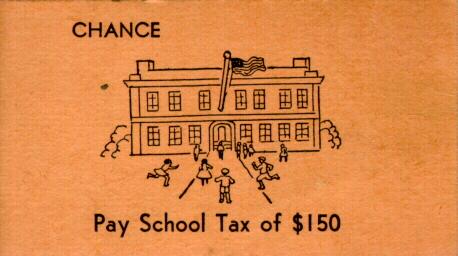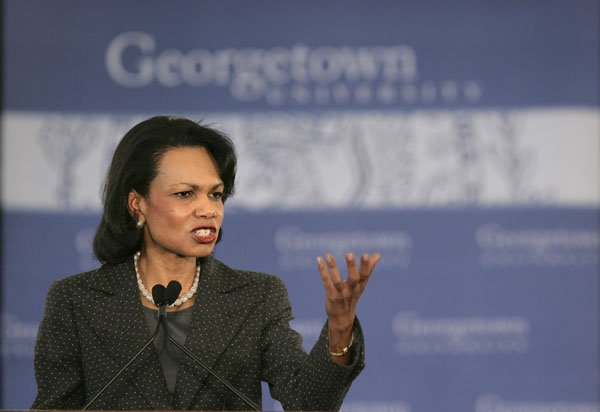Government Grants
Business Grants
Home Owner Programs
Federal Programs
About Us
Design and Implementation of the English Micro-scholarship Programs in Uzbekistan
The Public Affairs Section at the U. S. Embassy Tashkent is pleased to announce it is accepting applications for the design, implementation, and management of its English Access Microscholarship Programs across Uzbekistan.
Background:
The English Access Microscholarship Program (Access) is a global scholarship program supported by the U. S. Department of State that provides a foundation in English and computer skills to talented 13- to 20-year-old students from economically disadvantaged backgrounds through after-school classes and intensive sessions.
Access students also gain an appreciation of U. S. culture and democratic values through enhancement activities.
Access is a two-year program that requires a minimum of 360 hours.
Access aims to increase English Language fluency and communication skills.
Enhancement activities familiarize students with U. S. cultural values and encourage them to take an active role in their communities through service projects and by sharing what they learn.
Access gives participants English skills that may lead to better jobs and educational prospects.
It is intended to increase their ability to participate successfully in the socio-economic development of their countries and improve their chances to participate in educational and professional exchange programs in the United States.
Since its inception in 2004, approximately 195,000 students in more than 88 countries have participated in the Access Program.
Project description:
The goal of the Access Program is to equip talented students who possess a minimal knowledge of English with effective communication and critical thinking skills through meaningful interaction, cooperative learning strategies, and real-life contexts.
Additionally, Access seeks to prepare students for conversational English language skills with native and non-native speakers of English through a variety of experiential learning activities.
Selected participants must be bright, economically disadvantaged students with a beginning level of English.
Participants should commit to enroll in classes during the full two-year program.
Students are expected to graduate with certificates of completion from the U. S. Embassy in Uzbekistan at the end of their two-year program.
The Successful Provider will be Responsible for the Following Tasks:
· Overseeing the implementation of all current and future Access programs across Uzbekistan in coordination with the U. S. Embassy in Tashkent and the Regional English Language Officer (RELO) for Central Asia; · Advertise and promote the program in local communities across the country; · Recruit and select program participants, teachers and staff members in coordination with the Embassy; · Ensure all Access programs provide the required English Language instruction (after school and intensive sessions); · Nominate participants and staff for workshops and other professional development opportunities through relevant U. S. Embassy staff; · Regularly monitor and evaluate the program to ensure the program is implemented as negotiated with RELO and U. S. Embassy staff as well as to highlight best practices and address challenges quickly; · Send invitations to the relevant U. S. Embassy staff alerting them to special events, as well as opportunities to visit and speak; · Submit success stories of Access Program students to relevant U. S. Embassy staff, in a timely manner, for use on social media.
Project Goal:
Support the socio-economic empowerment of youth in Uzbekistan through intensive English language and digital literacy instruction Audience:
Economically disadvantaged youth (age 13-18) across Uzbekistan Project Objectives:
1. Improve the English Language fluency and communication skills of approximately 800 students in reading, writing, and speaking 2. Increase awareness of U. S. culture and values through hands-on and interactive cultural activities 3. Increase the technical knowledge and skills of students in computer and digital literacy
Background:
The English Access Microscholarship Program (Access) is a global scholarship program supported by the U. S. Department of State that provides a foundation in English and computer skills to talented 13- to 20-year-old students from economically disadvantaged backgrounds through after-school classes and intensive sessions.
Access students also gain an appreciation of U. S. culture and democratic values through enhancement activities.
Access is a two-year program that requires a minimum of 360 hours.
Access aims to increase English Language fluency and communication skills.
Enhancement activities familiarize students with U. S. cultural values and encourage them to take an active role in their communities through service projects and by sharing what they learn.
Access gives participants English skills that may lead to better jobs and educational prospects.
It is intended to increase their ability to participate successfully in the socio-economic development of their countries and improve their chances to participate in educational and professional exchange programs in the United States.
Since its inception in 2004, approximately 195,000 students in more than 88 countries have participated in the Access Program.
Project description:
The goal of the Access Program is to equip talented students who possess a minimal knowledge of English with effective communication and critical thinking skills through meaningful interaction, cooperative learning strategies, and real-life contexts.
Additionally, Access seeks to prepare students for conversational English language skills with native and non-native speakers of English through a variety of experiential learning activities.
Selected participants must be bright, economically disadvantaged students with a beginning level of English.
Participants should commit to enroll in classes during the full two-year program.
Students are expected to graduate with certificates of completion from the U. S. Embassy in Uzbekistan at the end of their two-year program.
The Successful Provider will be Responsible for the Following Tasks:
· Overseeing the implementation of all current and future Access programs across Uzbekistan in coordination with the U. S. Embassy in Tashkent and the Regional English Language Officer (RELO) for Central Asia; · Advertise and promote the program in local communities across the country; · Recruit and select program participants, teachers and staff members in coordination with the Embassy; · Ensure all Access programs provide the required English Language instruction (after school and intensive sessions); · Nominate participants and staff for workshops and other professional development opportunities through relevant U. S. Embassy staff; · Regularly monitor and evaluate the program to ensure the program is implemented as negotiated with RELO and U. S. Embassy staff as well as to highlight best practices and address challenges quickly; · Send invitations to the relevant U. S. Embassy staff alerting them to special events, as well as opportunities to visit and speak; · Submit success stories of Access Program students to relevant U. S. Embassy staff, in a timely manner, for use on social media.
Project Goal:
Support the socio-economic empowerment of youth in Uzbekistan through intensive English language and digital literacy instruction Audience:
Economically disadvantaged youth (age 13-18) across Uzbekistan Project Objectives:
1. Improve the English Language fluency and communication skills of approximately 800 students in reading, writing, and speaking 2. Increase awareness of U. S. culture and values through hands-on and interactive cultural activities 3. Increase the technical knowledge and skills of students in computer and digital literacy
Obtain Full Opportunity Text:
https://www.usbr.gov/drought
Additional Information of Eligibility:
The U. S. Embassy Tashkent encourages applications from U. S. and Uzbekistan registered not-for-profit, civil society/non-governmental organizations, and educational institutions with at least three years of programming experience in administering educational programs and/or teaching English, preferably with similar projects.
The grantee must be willing to work with the existing Access and Access Satellite Center location(s) and venue(s) with the understanding that the grantee is responsible for ensuring those locations and venues meet the standards of the program and could change in the future.
The grantee will be responsible for recruiting participants.
Organizations with previous experience and a capacity of working with educational institutions on a national level will be given priority.
This experience should be documented in the organization’s proposal.
Full Opportunity Web Address:
See Related Documents
Contact:
Agency Email Description:
For Inquiries
Agency Email:
Date Posted:
2022-02-16
Application Due Date:
Archive Date:
2022-05-15
Social Entrepreneurship
Spotlight
Wealthy Resource Generation: Tax Us More!

Resource Generation, a group of young people who grew up wealthy, wish to give something back. They published a letter this week that implies advocacy and participation in structural change that will ultimately improve the resourcing of schools in Pennsylvania.

